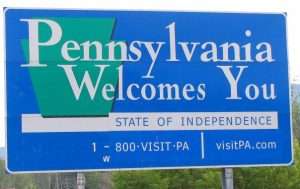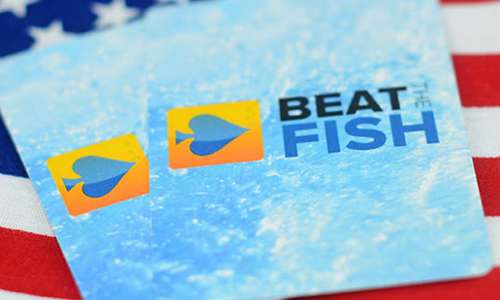Online Poker Amendment Passes Pennsylvania House
A month ago, the future of online poker was delayed in Pennsylvania when two amendments to Rep. John Payne’s HB 649 were given the thumbs down in the House of Representatives. Because there was some confusion as to the authorship of those amendments that resulted in some wacky votes, a re-vote at a later date was requested. Payne said earlier this week that he thought a new vote would be coming soon and he was right, though it wasn’t on his bill. Instead, the House of Representatives passed an amendment to HB 2150 that approves significant gaming expansion in Pennsylvania, including online poker and daily fantasy sports.
The amendment, numbered A8734, passed Wednesday by a 115 to 80 vote. The next step is for the bill, with the amendment, to go to the House Appropriations Committee to make sure all the financial numbers square. Assuming everything looks good there, it would go to the House floor for a vote and then to the Senate if it passes the House.
 Online Poker Given Green Light
Online Poker Given Green Light
The highlight of the amendment for our readers is, of course, the legalization and regulation of online gambling, including poker and casino games. The usual regulations are in there, such as a 21-year minimum age to play, the requirement to have anti-problem gaming measures such as self-restriction, and the onus on operators to have effective age and geolocation verification systems in place.
Casinos will be charged an $8 million licensing fee, though online operators who partner with the casinos will not be asked to pay as much. Gaming revenues will be taxed at 16 percent, with most of that – 14 percent – going to the state. The other two percent is a local tax that will be dispersed via a grant program.
Perhaps interestingly, casinos who launch online gaming sites will not be allowed to use that as an excuse to reduce their gaming footprint in their brick-and-mortar locations. The amendment actually prohibits casinos from decreasing the number of slot machines they currently have.
Daily Fantasy, Too
As mentioned, daily fantasy sports were also legalized. For whatever reason, the minimum age there is 18 instead of 21. The DFS sites will not have to partner with casinos and casinos can feel free to start their own sites if they wish. Sites will have to be licensed and will be required to fork over five percent of their net gaming revenues to the state. Amateur sports are off limits in Pennsylvania DFS, so forget about putting together a college football lineup.
In a related measure, the bill mandates the Pennsylvania Gaming Control Board to draft regulations for actual sports betting. Now, sports betting is not legal yet because of the Professional and Amateur Sports Protection Act of 1992 (PASPA), but there has been some pushback on that recently in Washington, so there is a non-zero chance that PASPA could eventually be repealed, allowing states to launch sports betting industries. If it ever happens, the bill would only allow for casinos to take bets; licenses would cost $5 million.
Bill May Have Hinged on VGTs
There was more to the amendment than just online gaming and DFS, but in the end, it seems like the fate of the bill had everything to do with its treatment of video gaming terminals (VGTs). Many legislators, particularly GOP leadership, including Speaker Mike Turzai and Majority Leader Dave Reed, wanted VGTs to be permitted all across the state in places like taverns and social clubs, but many more did not want such widespread expansion. The state’s casino lobby, in particular, was dead-set against VGT expansion, as it saw them as a threat to their revenue streams.
The expanded VGT proposal was soundly defeated, 116-79, while the amendment without VGTs passed by almost the inverse tally. What the amendment does allow is for the installation of slot machines in airports. Philadelphia’s airport would be charged a $5 licensing fee to have them, Pittsburgh’s fee would be $2.5 million, and the four other international airports would have to pay $1 million. Additionally, gambling tablets would be available in airport lounges. The would be mounted in place, not portable, and would be used to order food and drink as well as to place wagers.
The removal of the expanded VGT rules was arguably the most important aspect of the bill for online poker fans. It was apparent that the bill would not have passed had there been no non-VGT option, except perhaps with major concessions elsewhere. On top of it, it is thought that VGTs would have been received even more negatively in the Senate, making the chances of the bill’s passage dubious, at best.



















COMMENTS